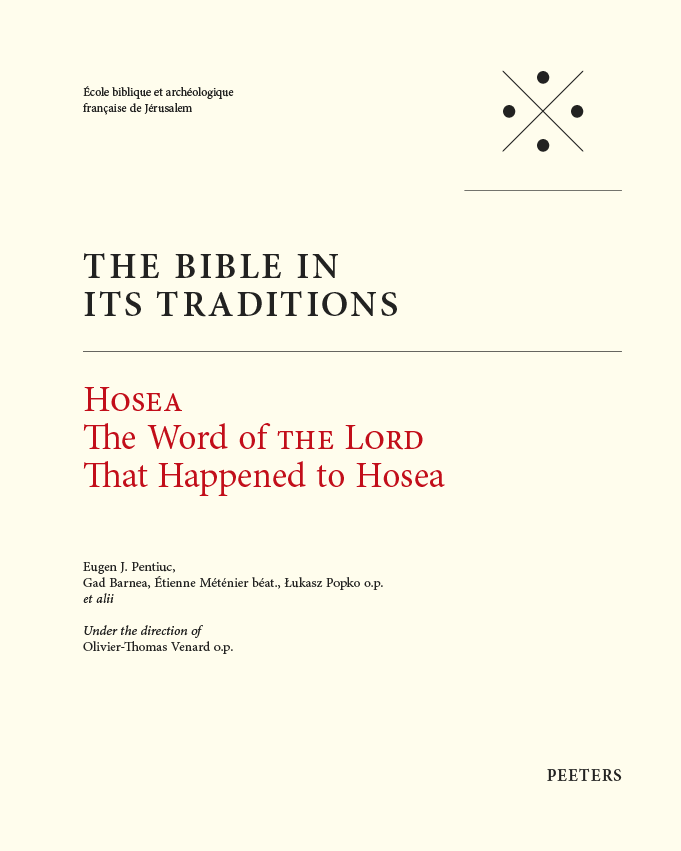

 0
EN
0
EN

According to the Talmud, “four prophets prophesied in one age and the greatest of all of them was Hosea.” The Book of Hosea is in fact a key to the Hebrew Bible, a unique witness to the antiquity of Scripture, as it offers a number of the oldest testimonies to various traditions, such as the Exodus, the Decalogue, as well as patriarchal legends such as the cycle of Jacob. But Hosea is much more than a deposit of ancient traditions. Hosea’s prophecy harbors phrases that have transformed the image of God forever, such as “I desire kindness and not sacrifice and knowledge of God rather than burnt offerings” (Hos 6:6), or “My heart has turned against me together — my consolations have been kindled. I will not do the heat of my anger. […] For I myself am God and not man” (Hos 11:8cd-9ac). Far from the immobile first mover of Greek philosophy, this is the heart of a passionate God who pours out his feelings that are turned upside down with humanity in these inspired pages.
For the first time the four great versions in which this Word has gone through the centuries — the Masoretic text, the Septuagint, the Vulgate and the Peshitta — have been collated and meticulously translated into English on a same page. This is accompanied by a wealth of annotations that allow one to hear echoes throughout various periods, confessions and disciplines, from textual criticism to films, as well as Jewish and Christian traditions, literature, painting and music.



